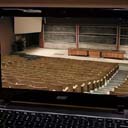
Marshall Sahlins has resigned from the National Academy of Sciences in political and academic protest. His motivations lead to some big questions: What is anthropology? What is it for? And what does it mean to be human?

The Economist, long identified with libertarian economic ideals, lauded the “Nordic model” in a cover story last month as a “centrist” economic path for global capitalism.

Organized fast-food workers recently celebrated a tentative victory in New York. Deliverymen at four Manhattan Domino’s locations were granted leave to amend a complaint in an ongoing class-action lawsuit—a mundane but necessary step in what labor organizing has become in …

Throughout Mumbai, one can see members of a vast, seldom-remunerated labor pool that does not share in globalization’s promises of plenty and exists on the legal margins. Sixty-two percent of Mumbaikars live on land to which they have no legal claim.

In the last few years, Dresden became the site of an intense political struggle over how to adequately respond to thousands of neo-Nazis marching annually in the streets. It also became the site of an ongoing authoritarian-conservative backlash against social movements.

The CCTV Headquarters constitutes Koolhaas’s attempt to mitigate the pervasive banality he associates with the present. It is probably his masterpiece.

The ex-comedian Beppe Grillo’s Five Star Movement is now the first party in the Italian parliament. His rise, along with the resurgence of Berlusconi, signal a stable right-wing hegemony in Italian politics and society.

In the movement and in their town, Ivone and Vania learned firsthand the pain that comes from silence. They didn’t want to damage a movement that protected other women from this pain by demanding a space in the movement for themselves.

However bold the president’s pitch seems in the current political climate, a minimum wage of $9.00/hour is still a modest threshold by any sensible measure.

Left-wing alliances with fundamentalist groups are betrayals of the majority of their co-religionists, who do not wish to be represented by extremists. Such alliances are also betrayals of basic socialist principle.

A college professor once taught me that a decaying empire clenches onto power with a chokehold. Israel’s occupation of the Palestinian people may not be an empire, but after nearly forty-six years, it has become a sort of reigning paradigm …

For reactionaries of all stripes, complaining about the inefficiency and tyranny of clerks has long served as an excuse to call for both limited government and enhanced executive power.

Two new online exclusives on private initiatives to reform higher education: James Dennis on the CUNY Pathways Initiative and Geoff Shullenberger on the rise of the MOOCs.

Early on in the 2012 presidential campaign, the New York Times reported on Mitt Romney’s promotion of a for-profit Florida university called Full Sail. This advocacy, which seems to have helped Romney expand his donor base (the Times found that …

What began as a fight between English faculty and the administration at a small urban community college is quickly becoming the front line in a national struggle over the future of higher education. As of this writing, two of the …





















